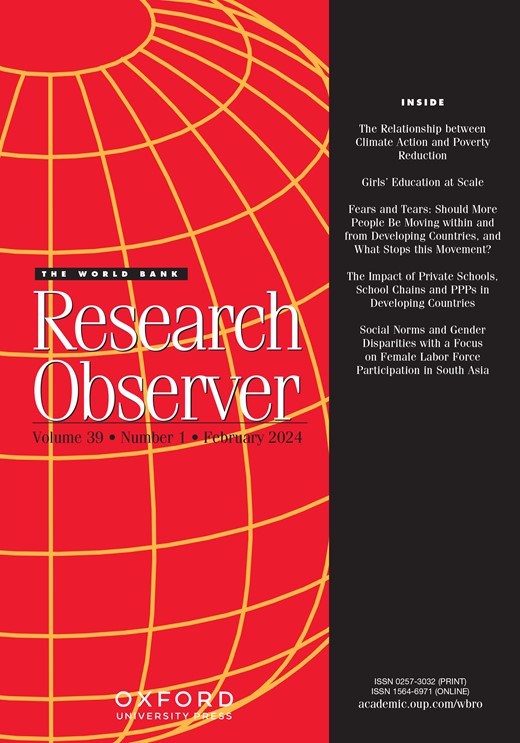土地注册、治理与发展:证据与政策启示
IF 3.3
1区 经济学
Q1 DEVELOPMENT STUDIES
引用次数: 324
摘要
建立和维护可靠的土地产权制度对发展的影响一直是一个备受争议的话题。作者回顾了有关特定背景下土地管理干预影响的文献,强调了结果对治理环境、国家机器的有效性和社会经济权力分配的依赖。有证据表明,虽然不是统一的,但通过土地登记加强了保有权的保障,其好处表现在更高水平的投资和生产力以及减少了捍卫土地权的需要。土地注册也被证明可以增加土地租赁市场的活动,从而提高整体效率。由于土地权利的正规化,获得信贷的机会得到改善的证据很少。即使在土地登记具有积极效益的情况下,文献也很少对成本效益和影响的长期可持续性进行严格分析。作者得出的结论是,土地权利的正规化不应被视为灵丹妙药,只有在仔细诊断了政策、社会和治理环境之后,才能决定干预措施。如果干预是合理的,则需要根据土地管理系统的覆盖范围、成本效益和提供服务的质量来衡量其表现。本文章由计算机程序翻译,如有差异,请以英文原文为准。
Land Registration, Governance, and Development: Evidence and Implications for Policy
The developmental impact of institutions to establish and maintain secure property rights to land has been a subject of much debate. The authors review the literature on the impact of land administration interventions in specific contexts, highlighting the dependence of outcomes on the governance environment, the effectiveness of the state apparatus, and the distribution of socio-economic power. There is evidence, albeit not uniform, of enhancement of tenure security through land registration with benefits manifesting themselves in higher levels of investment and productivity and a reduced need to defend land rights. Land registration has also been shown to increase activity in land rental markets, leading to higher efficiency overall. Evidence of improved access to credit, due to formalization of land rights, is scant. Even in situations where land registration had positive benefits, the literature contains little rigorous analysis of cost-effectiveness and long-term sustainability of impacts. The authors conclude that formalization of land rights should not be viewed as a panacea and that interventions should be decided only after a careful diagnosis of the policy, social, and governance environment. If intervention is justified, the performance of land administration systems needs to be benchmarked in terms of coverage, cost-effectiveness, and quality of service provision.
求助全文
通过发布文献求助,成功后即可免费获取论文全文。
去求助
来源期刊

World Bank Research Observer
Multiple-
CiteScore
12.60
自引率
1.20%
发文量
8
期刊介绍:
The World Bank Journals, including the Research Observer, boast the largest circulation among economics titles. The Research Observer is distributed freely to over 9,100 subscribers in non-OECD countries. Geared towards informing nonspecialist readers about research within and outside the Bank, it covers areas of economics relevant for development policy. Intended for policymakers, project officers, journalists, and educators, its surveys and overviews require only minimal background in economic analysis. Articles are not sent to referees but are assessed and approved by the Editorial Board, including distinguished economists from outside the Bank. The Observer has around 1,500 subscribers in OECD countries and nearly 10,000 subscribers in developing countries.
 求助内容:
求助内容: 应助结果提醒方式:
应助结果提醒方式:


